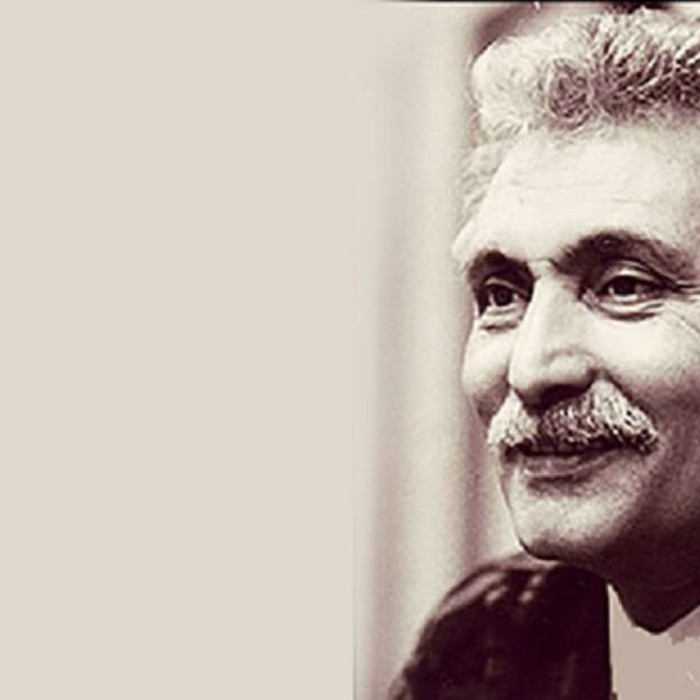
Manouchehr Atashi, known by his pen name Sorna, was a poet, critic and journalist. He was born in 1310 SH in the village of Dehrud in Dashtestan County from Borazjan district of Bushehr Province. This is what he recalls about his past and life: “My family was from the Zangeneh nomad tribe of Kermanshah, who had migrated to south about four generations ago. My family name became Atashi (meaning attributed to fire) because my great grandfather’s name was Atash Khan Zangeneh. My father was an educated man. Major Esfandiary, who was known as the little Reza Khan in south, was very fond of my father, and that is why he transferred him to Bushehr, where he began working in its Administration Office. In 1318 SH I went to Maktab (traditional elementary school) and learned holy Quran and Golestan by Sa’di in Dehrud. Following the riots that took place, I moved to Bushehr and studied there until middle school. It was then that I missed my village life and, despite all the objections, I went back with my mother, brother and sister. I fell in love in Chahkuh. My first poems were related to those times.” Manouchehr Atashi finished his school in Bushehr and went to Daneshsaraye Moghadamati of Shiraz (an institute of training teachers for elementary school) to pursue his education. He became a teacher in 1333 SH and began working in the school around Shiraz. In 1339 he entered Daneshsaraye Aali of Tehran and graduated in Bachelor of English Literature. He began publishing his poems since 1333 SH and quickly became a well-known contemporary poet.
Manouchehr Atashi published the book Ketab-e Ahang in late 1330s. It was an experimental period of his professional life. After spending some time in the wild nature of the south, he achieved a kind of instinctive violence. But his kind of violence is distinguishable from those of poets before and after him by both the presence of southern nature and his epic tone. The poems he wrote in 1330s, 40s and 50s were poems of the desert, where natural elements are combined with epic and violence. Parallel to these, he was also a poet of love, hope and his own philosophy, too. According to him, a poet is written based on a notion. In one of his poems, he proposes to send the reader, who is cold, a sun in an envelope and asks for a star put into a word to be sent back to him, as he is uninspired. Manouchehr Atashi passed away on Aban 29, 1384 SH as a result of a heart attack. He was buried in Bushehr. He was hailed a prominent figure in literature by the Chehrehaye Mandegar Foundation just a few days before his death.
